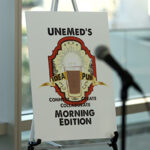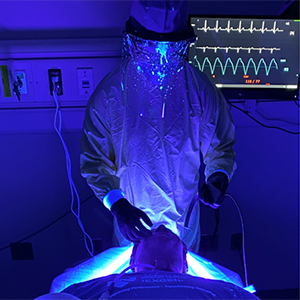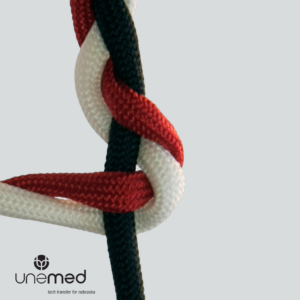New standard of care set
by Tom O’Connor, UNMC Communications
OMAHA, Neb. (May 30, 2013)—A new gene test for patients with breast cancer – called MammaPrint – could dramatically reduce the number of women who need to undergo chemotherapy to treat the disease.
The test is available at the University of Nebraska Medical Center and its hospital partner, The Nebraska Medical Center. It analyzes 70 key genes and accurately determines which patients are at low risk of breast cancer recurrence and could safely choose not to undergo chemotherapy.
The test has been validated in a peer-reviewed study called MicroarRAy PrognoSTics in Breast CancER (or RASTER), conducted in 16 community-based clinics in the Netherlands. The results were published online earlier this year in The International Journal of Cancer and will later appear in the journal’s print edition.
The five-year study involved 427 breast cancer patients who were given the MammaPrint test. The test determined 219 women to be low risk and 208 to be high risk.
Of the 219 low-risk patients, 85 percent chose not to have chemotherapy. Of those patients, 97 percent were disease-free after five years. Of the 208 high-risk patients, 81 percent chose chemotherapy and 91 percent were disease-free after five years.
“This is an important breakthrough for breast cancer patients,” said James Edney, M.D., UNMC professor of surgical oncology. “By incorporating MammaPrint results along with the traditional clinical parameters, such as tumor size, grade, patient age and lymph node status, we can significantly reduce the number of women who need chemotherapy. In doing so, they can avoid the side effects and toxicity of chemotherapy treatment, some of which can be permanent and debilitating.”
Long-term side effects of chemotherapy could include damage to the heart, kidneys, lungs, nerves or reproductive organs. There is also the chance of developing a second cancer as a result of chemotherapy, Dr. Edney said.
Dr. Edney has used the test on approximately 160 patients, and it has been met with an extremely positive response, he said.
Unlike other breast cancer genomic tests that are limited to patients with certain disease characteristics, such as certain receptor and lymph node status, Dr. Edney said MammaPrint can be administered to virtually all early-stage breast cancer patients. It requires a breast cancer assay performed on either fresh or fixed tumor tissue.
MammaPrint results benefit the physician, he said, by clearly categorizing all patients as high or low risk and eliminating the uncertainty of indeterminate scores reported by other genomic test methods.
The RASTER study is considered unique, Dr. Edney said, because it is the first and only study to prospectively evaluate the performance of a genomic breast cancer test by using outcome data. In this case, the patient cohort was followed for five years.
The study showed that MammaPrint identified 30 percent more patients as low risk than the traditional clinical parameters often used in the U.S. to determine risk of recurrence. The test has been cleared by the U.S. Food and Drug Administration.
MammaPrint was developed by Agendia, a molecular diagnostic company headquartered in Amsterdam, the Netherlands with a genomics laboratory in Irvine, Calif.
Through world-class research and patient care, UNMC generates breakthroughs that make life better for people throughout Nebraska and beyond. Its education programs train more health professionals than any other institution in the state. Learn more at unmc.edu.
With a reputation for excellence, innovation and extraordinary patient care, The Nebraska Medical Center is ranked by U.S. News and World Report as one of America’s Top Hospitals in cancer, neurology/neurosurgery, orthopaedics, gastroenterology and nephrology. It has earned J.D. Power and Associates’ Hospital of Distinction award for inpatient services for six consecutive years and has also achieved Magnet recognition status for nursing excellence. As the teaching hospital for the University of Nebraska Medical Center, this 627 licensed bed academic medical center has an international reputation for providing solid organ and bone marrow transplantation and is well known nationally and regionally for its oncology, neurology and cardiology programs. The Nebraska Medical Center can be found online at www.nebraskamed.com.









